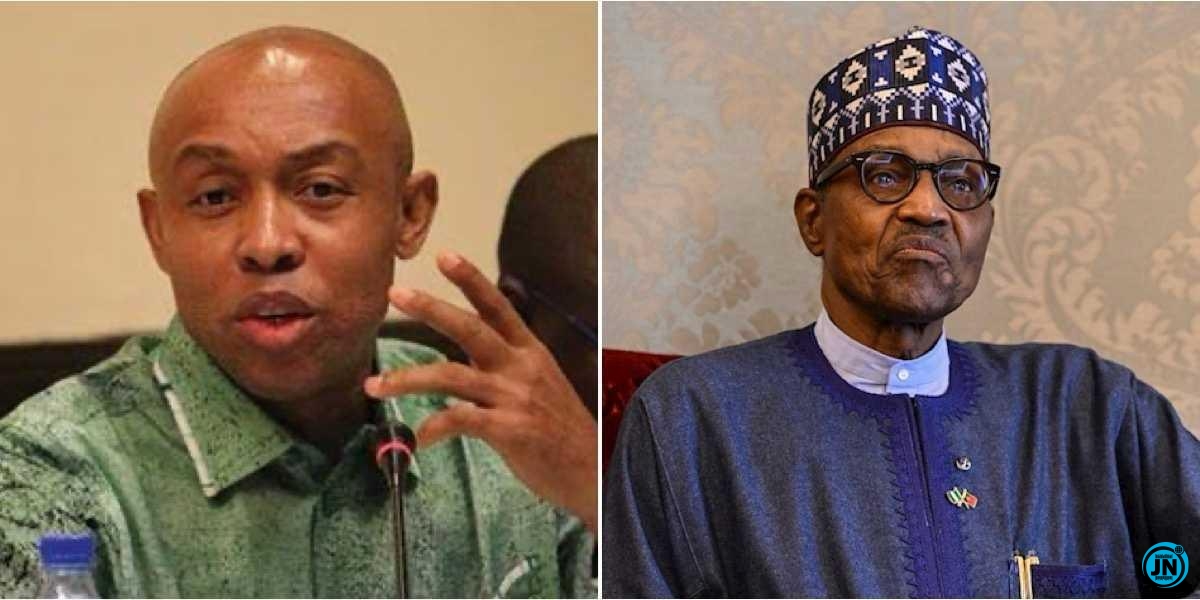
Following the death of former President Muhammadu Buhari, Nigerian human rights lawyer and activist, Chidi Odinkalu, has sent a strong message to politicians, warning them of the consequences of consistently neglecting the nation’s healthcare system. His remarks have reignited national discussions on the poor state of Nigeria’s public hospitals and the culture of medical tourism among the political elite.
In a post shared on Sunday, July 13, shortly after the announcement of Buhari’s death, Odinkalu wrote:
“Nigeria’s current rulers may need to be reminded: Those who die in foreign hospitals only get to return to the country as cargo. They don’t pass through @immigrationng. Rather, we clear them through @CustomsNG as import. If you don’t want this, build a hospital that can work for you.”
The activist used the opportunity to call out Nigerian politicians for regularly seeking medical treatment abroad while failing to build a functional healthcare system at home. He criticized leaders who choose to invest in their health overseas rather than improve domestic hospitals, leaving millions of ordinary Nigerians to suffer from inadequate healthcare services.
Odinkalu also referenced the 2015 Zaria massacre, which occurred during Buhari’s tenure, recalling the burial of scores of Shiite Muslims in mass graves. By highlighting this tragic incident, he emphasized the need for accountability and humane leadership, suggesting that leaders should remember the value of human life when making policies and decisions.
“I remember today all the #Shiites liquidated in the #ZariaMassacre in Dec 2015 under the orders of the C-In-C, including 3 sons of Sheikh El-Zakzaky. Their remains were transported in at least 47 trucks and buried in mass graves in Mando, Kaduna,” he added. This stark reminder was intended to spark national reflection on justice, human rights, and the treatment of citizens.
Former President Buhari died in a London hospital on Sunday after a prolonged illness. Despite being a strong advocate of "local solutions" during his tenure, Buhari spent a significant amount of time abroad for medical reasons, a fact that has drawn criticism from activists like Odinkalu.
He served as Nigeria’s civilian president from 2015 to 2023 and as military head of state from 1984 to 1985. His time in office was marked by both achievements and controversies, with supporters praising his anti-corruption efforts and critics condemning his handling of human rights issues and economic challenges.
President Bola Ahmed Tinubu, in a tribute, described Buhari as a patriot, soldier, and statesman, and directed that national flags be flown at half-mast for seven days in his honour. This directive was met with a mix of respect and criticism, with some citizens urging the government to focus on resolving issues Buhari was unable to address fully during his time in office.
Vice President Kashim Shettima and Chief of Staff Femi Gbajabiamila have since arrived in London to coordinate the return of Buhari’s remains to Nigeria. Their arrival underscores the importance of Buhari's final journey home and the high-level attention given to his burial arrangements.
According to former presidential aide Bashir Ahmad, Buhari will be laid to rest in his hometown, Daura, Katsina State. The burial is expected to draw dignitaries from within and outside Nigeria, as well as thousands of supporters who wish to pay their final respects to the late former president.
Odinkalu’s powerful message serves as a call to action for Nigerian leaders to prioritize the nation’s health sector and ensure that future leaders do not have to depend on foreign hospitals, ultimately reflecting true commitment to the welfare of their citizens.

